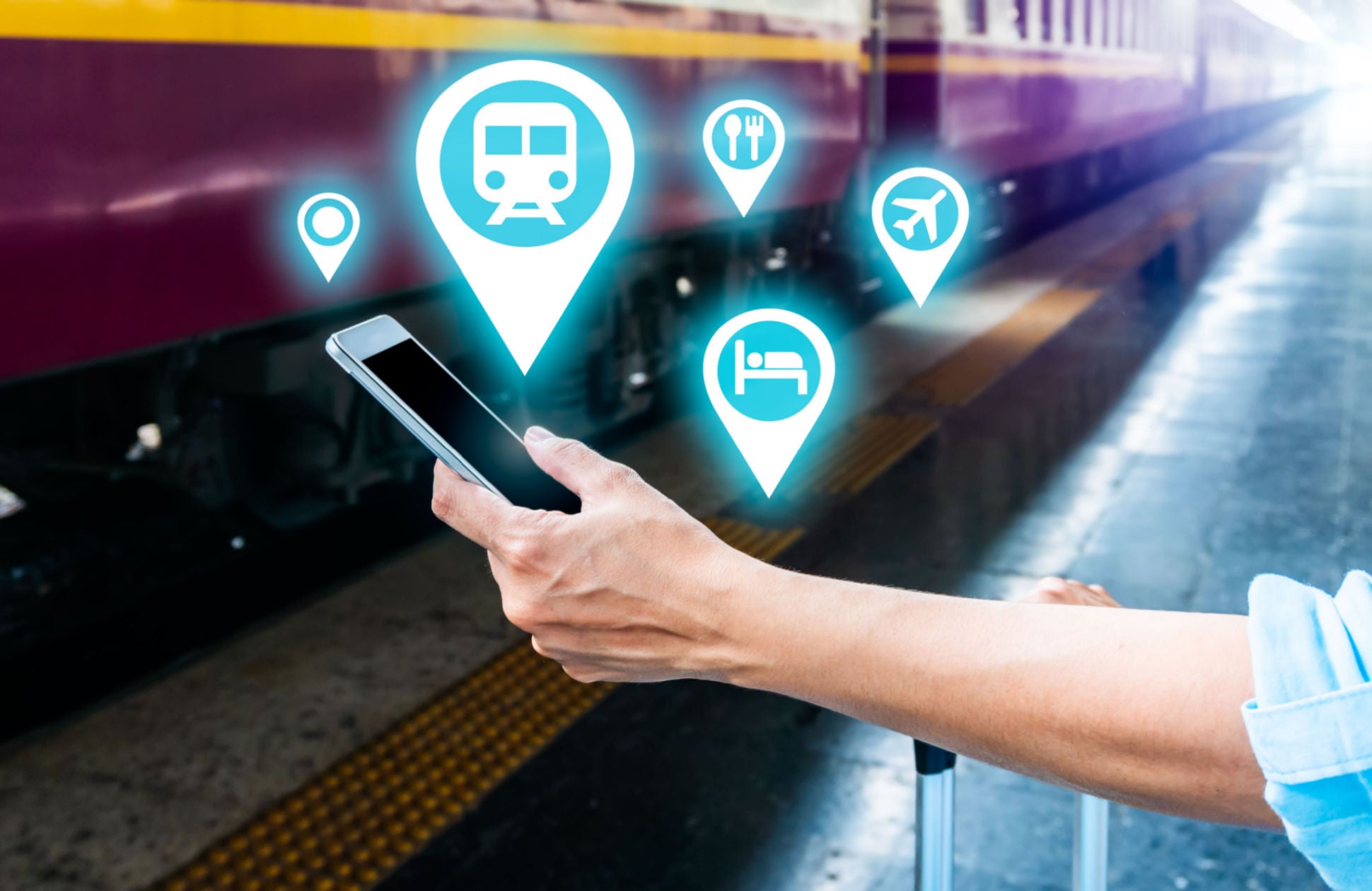The final form of mobility as a service (MaaS) is seamless movement from one mode of transport to another, all available and paid for through a single app. Many current systems focus on the private car over the individual, leading to the development of sprawling highways and areas that are only accessible to car owners. By 2030, these multimodal super-apps will be part of the transport revolution and will ensure that it is the human, rather than the vehicle, that is at the center.
Multimodal transport super-apps
Multimodal transport apps link multiple modes of transport together to complete a user’s journey. Apps like Citymapper are an example of this. Citymapper, used by over 50 million people, has already begun linking e-scooters to its transportation network. However, multimodal apps will have evolved by 2030 to cover all public and private modes of a city’s transport system. This will include e-scooters, robotaxis, autonomous buses, maglev trains, and even domestic planes powered by batteries or hydrogen fuel cells.
The second main change is that users will be able to pay for the entire journey through the same app. Some transport apps currently offer services to make journey payment easier, but these are often subscription-based. Citymapper, for example, currently provides a subscription service for unlimited access to public transport and Santander Cycles and GBP10 ($11.50) of weekly credit to spend on taxis and e-scooters. This is not accessed through the app but rather through a physical card or Apple wallet, and also comes at the steep price of GBP40.70 ($46.80) per week. In 2030, payments for journeys across different transport modes will be paid for in one app. This will increase the ease of use of city transport systems and help create transport systems more focused on individuals.
Super-app uptake will be global, but with a focus on the local
With consumers increasingly emphasizing reducing negative environmental impacts, these apps will also offer incentives for those that use more environmentally-friendly routes. This may be through discounts or partnerships with local shops and attractions located at interchanges along a user’s journey and the destination. By linking these incentives to local shops and attractions, the super-apps will be able to increase revenue generation in local communities. This follows the ethos that will be prevalent in 2030 of using transport systems to help create more vibrant communities and the focus on the human within the transport system.
These apps will require extensive collaboration between companies and public authorities to implement. It will be the more tech-savvy cities that have already piloted city-wide MaaS solutions that will implement the first pilots by 2030. Los Angeles, Las Vegas, Singapore, Barcelona, Vienna, Montpellier, and Paris will be among the first adopters.
The rest of transport in 2030
As mentioned before, transport in 2030 will be focused on human accessibility first and transport technology second. As such, it will not just be apps that will be part of the transport revolution. Ideas like the 30-minute village and the 15-minute city—where essential services are accessible to everyone by walk or bike within a specific timeframe—will become prevalent, and more systems will actively consider the needs of those with disabilities and those that are less tech-savvy. Technology developments across smart cities, autonomous vehicles, and electrification, all combined with bottom-up design will ensure that transport systems in 2030 will truly work for everyone.
How well do you really know your competitors?
Access the most comprehensive Company Profiles on the market, powered by GlobalData. Save hours of research. Gain competitive edge.

Thank you!
Your download email will arrive shortly
Not ready to buy yet? Download a free sample
We are confident about the unique quality of our Company Profiles. However, we want you to make the most beneficial decision for your business, so we offer a free sample that you can download by submitting the below form
By GlobalData






Related Company Profiles
Apple Inc